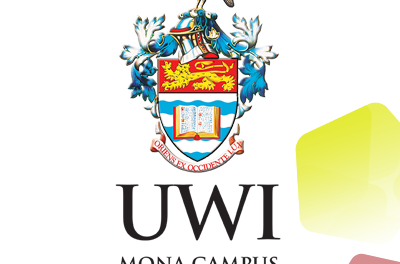STATISTICS SHOW DISPARITY IN MALE TO FEMALE ENROLMENT AT THE UNIVERSITY OF THE WEST INDIES (UWI)
Get our headlines on WHATSAPP: 1) Save +1 (869) 665-9125 to your contact list. 2) Send a WhatsApp message to that number so we can add you 3) Send your news, photos/videos to times.caribbean@gmail.com

Basseterre, St. Kitts, March 06, 2019 (SKNIS): There is an obvious disparity in enrolment at the University of the West Indies (UWI) when it comes to males and females, says Continuing and Professional Education Centre Director at The University of the West Indies Open Campus, Sarah Owen, during the radio-television show “Working for You” on March 06, while noting that more women than men take advantage of pursuing higher education.
Mrs. Owen stated that there are a number of pathways to learning offered at the UWI Open Campus including prior learning assessments, continuing education, continuing professional education, undergraduate degrees, and graduate degrees at the master’s and doctoral levels.
“From what I have seen, that across every single one of these pathways to learning, we are seeing more females enrolled than males,” she said. “It’s interesting because sometimes when we have international agencies that are looking at funding programmes, they may have a clause in there that says ‘How are you going to encourage female participation?’ How we respond is that we say that actually we need strategies to ensure that we have our men enrolling.”
The director revealed that in 2017 to 2018, in terms of continuing and professional education, there was 67 percent female enrolment and 31 percent male enrolment across the region for the UWI Open Campus. Data in St. Kitts, for the same period, show that there was 78 percent female enrolment as opposed to 18 percent male enrolment. Similarly in Nevis, 75 percent females enrolled as opposed to 16 percent males. The statistics for the undergraduate programmes are quite similar, she said.
However, before general statements are made, Mrs. Owen said that persons should look at economic development and each element of education.
“Even when we look at the St. Kitts and Nevis Education Policy Review that was done in 2016, when they examined the school leaving population and looked at early school leavers (those who are exiting the system prior to 5th form) still you have predominantly males who are exiting when you are looking at the gender ratio there,” she said.
A lot needs to be done to get more men engaged and there is a lot to be continued to work on, says Mrs. Owen. “We also need to transition our discussion from the enrolment in higher education to the engagement in economic activity and there is in fact a lot of engagement, but that is the level of engagement, where is this engagement taking place, what type of earning is taking place, is it taking place that is fair and equitable.”
Mrs. Owen noted that the United Nations (UN) Sustainable Development Goal #4 speaks to equity. It reads “Ensure inclusive and equitable quality education and promote lifelong learning opportunities for all.”
“So that’s the other thing we need to consider. To my mind, we have a very restricted way of viewing education because when we hear education we think of formal schooling. So, we think of preschool, primary school, secondary school, university, but the root word for education is “educere” which some would look at as simply meaning to lead forth. …If what we are doing is not leading people forth then are we actually engaged in education? I think there is a lot we can do from keeping that concept,” said Mrs. Owen. -30-
Leave a comment
You must be logged in to post a comment.